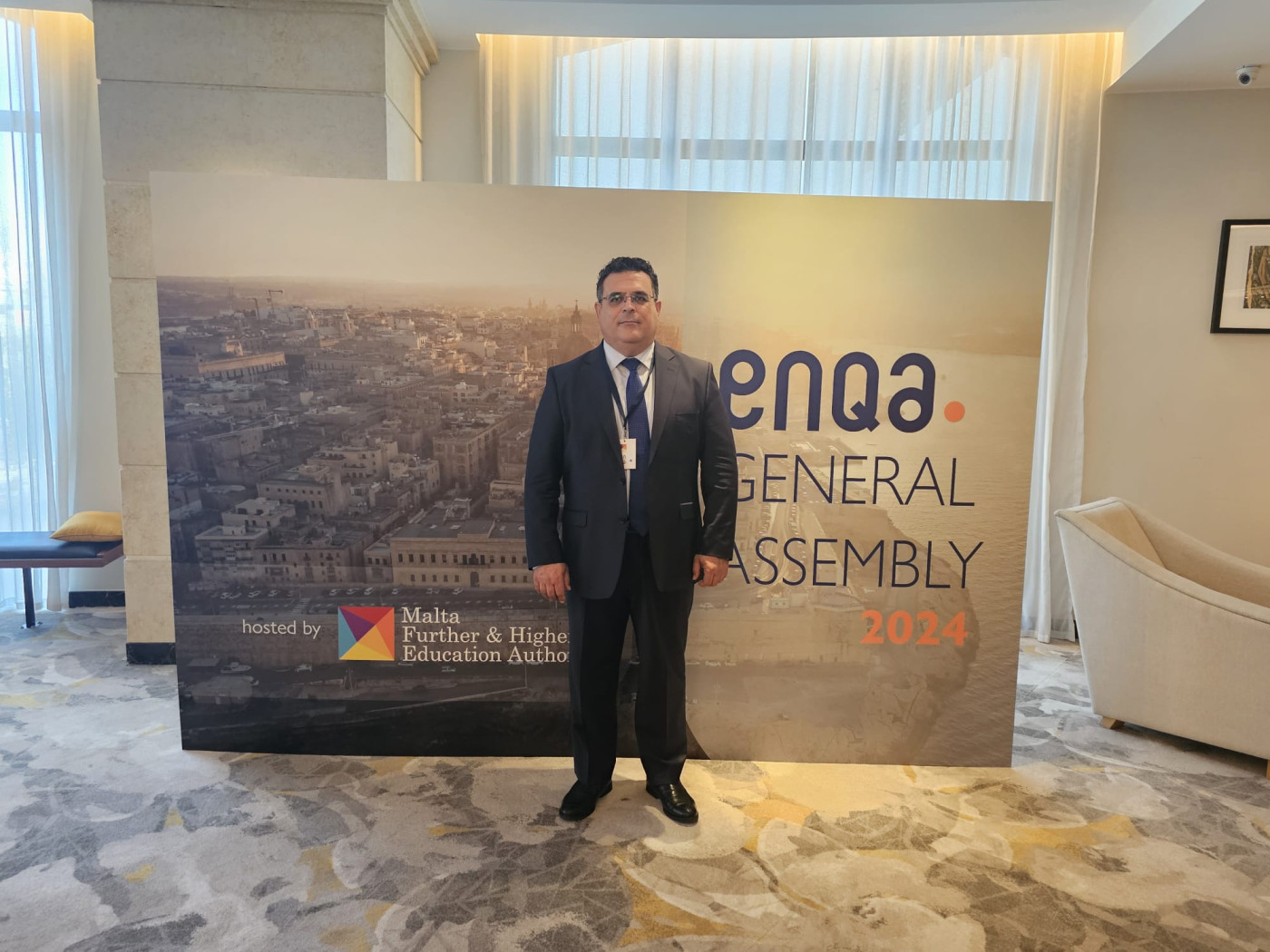
The issue of the north’s higher education accreditation authority (Yodak)’s membership of the European Association for Quality Assurance in Higher Education (Enqa) “must be resolved” before a scheduled Enqa meeting in Paphos next year, Yodan chairman Aykut Hocanin said on Friday.
Speaking to newspaper Yeni Duzen, he said that if the decision on whether Yodak will be re-admitted as an affiliate member is taken during the Enqa members forum in Paphos in April, “it is likely that such a decision will be negative there”.
“Enqa membership is important. In order to achieve accreditation in European standards, to follow quality processes, to be in a knowledge network with them, and for Yodak to be able to provide accreditation in European standards, it is necessary that wr are a member of this organisation,” he said.
In European terms, not being affiliated with Enqa effectively means that institutions in a jurisdiction are not recognised, and as such, the north’s universities would struggle to maintain their current level of global acceptance if they were not to be re-admitted.
Hocanin explained on Friday that when he took over as Yodak chairman in March, the €3,000 registration fee and the paperwork to re-register as an affiliate were ready, but that in September, he received a letter from Enqa saying one member had objected to the renewal.
“The letter said, ‘one of our members objected to your membership’s renewal. We are requesting information from /you for this. If you would like to provide information, please inform us,’” Hocanin said.
He explained that the objection was based on his predecessor Turgay Avci’s arrest in March.
Avci was arrested alongside former Yodak board member Mehmet Hasguler on Friday with both accused of taking under-the-table payments while the now-infamous Cyprus Health and Social Sciences University (KSTU)’s medicine school was applying for Yodak accreditation.
“The arrest of the head of the organisation is important. The diploma issues seen at KSTU, and that students are reportedly not coming to study but being trafficked,” Hocanin said on Friday.
To this end, he said Enqa’s board is “not convinced” about the veracity of the allegations made, saying he had “explained everything”.
“We issued a new bylaw for international students, so that we could monitor their arrival here, their transfers, and all sorts of issues, and we wrote a letter with an explanatory board decision” regarding work being carried out to implement Turkey’s higher education information management system, Yoksis, in the north.
On the matter of the status of any application, he denied claims that Yodak had not applied for its affiliate membership to be renewed, saying he had filed an application but that it had been rejected.
“The part where [an Enqa representative told the Cyprus Mail] we did not apply … We applied, our application was not improved. We were invited to apply again,” he said.
On Wednesday, the Republic of Cyprus’ Agency of Quality Assurance and Accreditation in Higher Education (Dipae) had written to Enqa, saying that Yodak’s membership had caused “Cyprus and higher education in Cyprus to be discredited”, given that universities in the north “bear the name of Cyprus and usurped the occupied territories”.
To this end, it made reference to “accusations of and arrests for corruption and the exploitation of students which saw the light of day”, as well as the north’s universities’ reported “relationship with human trafficking”
It added that Cyprus’ foreign ministry has “since day one” attempted to “highlight the illegal personality of Yodak”, but that Enqa’s response to the complaints has been “disappointing”.
Yodak’s struggles with Enqa membership come at the end of a difficult year for higher education in the north, with a scandal involving the alleged issuing of numerous fake degrees having rocked the north in the first half of the year.
Police investigations centred on Morphou’s Cyprus Health and Social Sciences University (KSTU), with the university’s 30-per-cent shareholder and secretary-general Serdal Gunduz among those arrested.
Gunduz stands accused of preparing forged documents, putting them into circulation, and encouraging others to do the same.
He remains in custody to this day, having been ordered to remain behind bars for a further three months at his most recent court hearing on May 8, with the court in Morphou ruling that he was a flight risk as he holds residence permits in both Greece and Russia.
Meanwhile, former ‘education minister’ Kemal Durust was one of the many others arrested, having allegedly fraudulently obtained thousands of euros by sending fake invoices to the university in question.
Durust had been lambasted in ‘parliament’ by opposition party CTP ‘MP’ Sami Ozuslu for having signed off on the opening of a total of 16 universities during his three stints as ‘education minister’ between 2009 and 2016.
Other high-profile arrestees include former Yodak chairman Turgay Avci and board member Mehmet Hasguler, and Ersin Tatar’s bodyguard Serif Avcil.
Avci resigned from his Yodak post and Aykut Hocanin stepped up to replace him, but his previous employment before being hired as Yodak chairman was as rector of the north’s largest public university, the Eastern Mediterranean University (EMU) in Famagusta.


